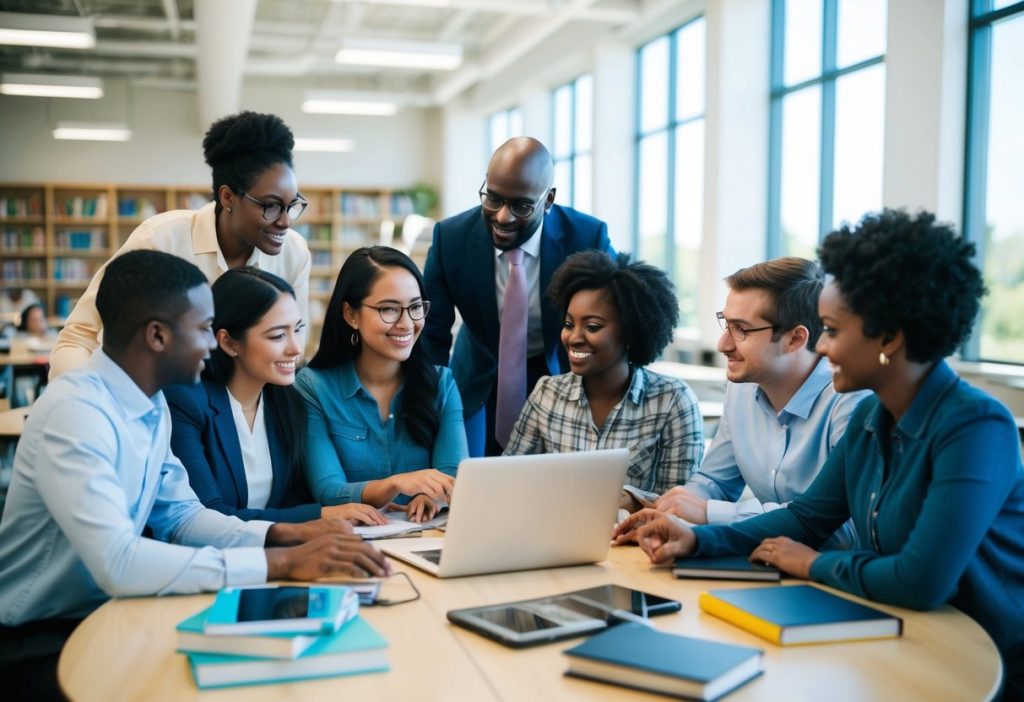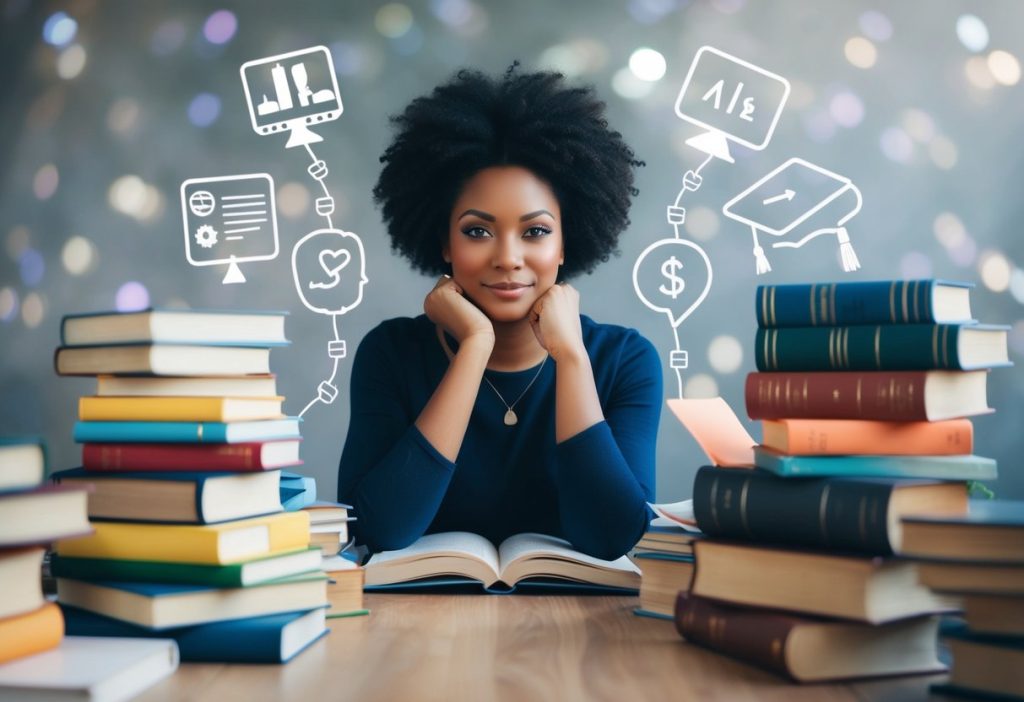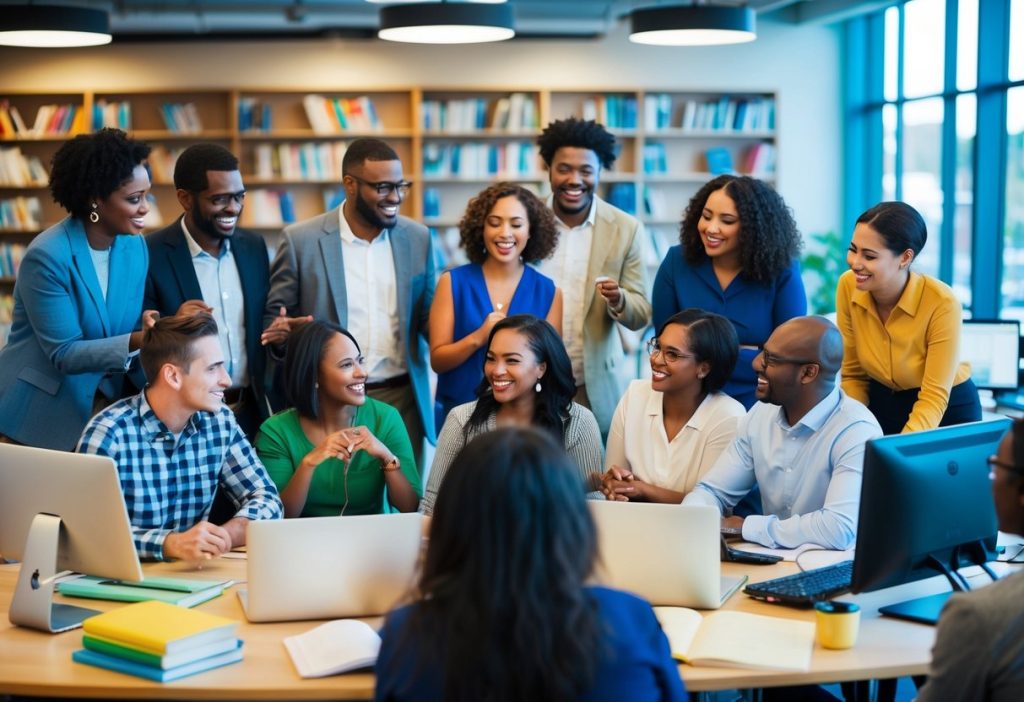Education plays a crucial role in empowering individuals to think critically and engage in lifelong learning. By fostering these skills, education can transform lives and equip people to navigate the complexities of the modern world.
Empowerment through education encourages students not only to absorb information but also to analyze and question it. This creates an environment where curiosity thrives.
Critical thinking is essential for making informed decisions. It allows individuals to evaluate different perspectives and understand the implications of their choices.
When education promotes critical thinking, it equips learners with the tools necessary for personal and professional success. Lifelong learning further enhances this process, as it encourages individuals to continuously seek knowledge and adapt to new challenges throughout their lives.
By nurturing both critical thinking and the passion for lifelong learning, education can lead to significant empowerment. It prepares individuals to engage actively in their communities while developing the confidence to pursue their goals. This combination of skills is essential in today’s fast-changing society, where the ability to learn and adapt is more important than ever.
Foundations of Empowerment in Education

Empowerment in education relies on several key elements. Effective pedagogy, reflecting on experiences, and fostering a growth mindset play critical roles in nurturing skills vital for personal and academic development. Each component contributes to an environment where learners can thrive.
Pedagogy and Critical Thinking
Pedagogy shapes how information is delivered in the classroom. Effective teaching methods encourage students to engage actively with content. This engagement cultivates critical thinking skills by prompting students to analyze, evaluate, and create.
Methods such as collaborative learning and project-based tasks are effective. They challenge students to solve real-world issues, boosting their confidence. When students take charge of their learning, they become more adept at navigating challenges independently.
Structured discussions and open-ended questions also enhance critical thinking. These strategies stimulate curiosity and invite diverse perspectives, allowing students to form their own conclusions.
The Role of Reflection in Learning
Reflection is vital for deeper understanding and personal growth. When students take time to think about their experiences and learning processes, they can identify strengths and areas needing improvement.
Incorporating reflective practices, like journals or group discussions, helps solidify knowledge. Students learn to recognize their thought patterns and biases. This self-awareness can lead to enhanced decision-making skills.
Moreover, reflecting on setbacks can foster resilience. Students can understand that mistakes are opportunities for growth. This mindset encourages a more positive approach to future challenges.
Cultivating a Growth Mindset
A growth mindset is crucial for empowerment in education. Students who believe their abilities can improve through effort are more likely to embrace challenges.
Educators can foster this mindset by celebrating effort and persistence rather than just outcomes. Providing constructive feedback reinforces the idea that learning is a process.
Activities that challenge students, like problem-solving tasks, promote resilience. When students encounter obstacles, they learn to view them as part of their journey.
Encouraging a culture of curiosity and exploration further enhances this mindset. Students become more willing to take risks in their learning, leading to deeper engagement and understanding.
Strategies for Lifelong Learning

Lifelong learning is essential for personal growth and development. It enhances creativity, curiosity, and adaptability in an ever-changing world. Several strategies can effectively support this journey, including fostering curiosity, utilizing active and experiential learning approaches, and promoting digital literacy.
Fostering Curiosity and Creativity
Curiosity drives individuals to explore new ideas and ask questions. Encouraging a culture where inquiry is welcomed can spark creativity.
Educators can create environments that stimulate curiosity by using open-ended questions and real-world problems. Implementing brainstorming sessions and group discussions allows learners to share diverse perspectives.
Activities like art projects or science experiments engage students’ creative thinking. Encouraging independent research fosters self-directed learning and empowers individuals to pursue their interests.
Active and Experiential Learning Approaches
Active learning boosts engagement and retention of knowledge. Techniques such as problem-based learning require learners to solve real-life challenges. This method encourages critical thinking and develops problem-solving skills.
Experiential learning, where students gain knowledge through direct experience, is equally important. Internships, service-learning projects, and simulations allow learners to apply their knowledge in practical settings. This hands-on approach deepens their understanding and prepares them for future challenges.
Educators should offer varied learning formats to cater to different preferences, ensuring all students can thrive.
Digital Literacy for the Modern World
In today’s digital age, digital literacy is a necessity. It encompasses the ability to navigate online resources and understand information critically.
Teaching students how to evaluate sources for credibility strengthens their research skills. Online platforms offer numerous opportunities for collaborative learning.
Utilizing tools like blogs, forums, and virtual discussions can enhance communication skills. Developing digital literacy also prepares students for the workforce, where technology is integral.
By incorporating these skills, individuals can stay adaptable and informed in a rapidly evolving landscape.
Expanding Horizons through Collaboration and Problem-Solving
Collaboration and problem-solving are essential skills that broaden learning experiences. They provide students with opportunities to engage actively with others while tackling real-world challenges. This section explores how teamwork and collaborative environments foster these competencies, and the importance of problem-solving in real-world contexts.
Teamwork and Collaborative Environments
Teamwork plays a vital role in education. It encourages students to share ideas and perspectives, leading to more innovative solutions.
Working in groups helps students build communication skills. They learn to express their thoughts clearly and listen to others. These skills are crucial for future careers.
In collaborative settings, students often handle tasks that reflect real-life situations. This prepares them for workplaces where teamwork is essential. Through projects, they also learn to navigate socioeconomic disparities by uniting diverse viewpoints.
Problem-Solving in Real-World Contexts
Problem-solving requires critical thinking and creativity. It allows students to tackle actual problems that affect their communities.
Engaging with real-world issues helps students understand their impact. They become informed citizens who can make positive changes.
For example, through community projects, they may address local environmental issues or social challenges. Meaningful problem-solving can bridge gaps caused by socioeconomic disparities. When students work together, they draw on individual strengths and backgrounds, leading to better outcomes for everyone involved.
Education’s Role in Societal Advancement
Education plays a vital role in fostering social justice and preparing future generations. By addressing inequality, it drives economic growth and promotes mental health while ensuring resilience in communities.
Addressing Inequality and Promoting Social Justice
Education is a powerful tool against inequality. It provides individuals with the knowledge and skills needed to challenge unfair practices.
With quality education, marginalized groups can break cycles of poverty. Programs focused on social justice help students identify issues in their communities.
They learn to advocate for their rights and the rights of others, empowering them to push for policies that promote equity.
Moreover, when students participate in civic engagement, they enhance their critical thinking skills. This directly correlates to healthier communities, as informed citizens advocate for change.
Preparing Future Generations for Sustainable Development
Preparing future generations for sustainable development is crucial for societal advancement. Education equips students with the tools needed to tackle global challenges. These challenges include climate change and resource management.
Through sustainability-focused curricula, students learn the importance of economic growth that does not compromise the environment. They are also encouraged to think critically about their choices and their impact on the planet.
Schools that incorporate mental health education build resilience in students. Understanding mental health fosters a supportive community that values well-being. This holistic approach ensures that future leaders are equipped to create balanced, sustainable societies.



